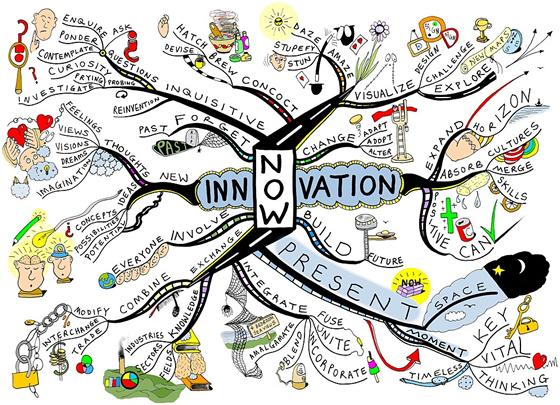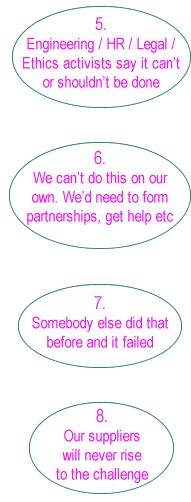
A consistent mantra over the last few years has been “strive to do more, with less.” Yet full-time employees in the UK work longer hours than the European Union average, but are 16% less productive, according to data from the Office for National Statistics for 2012. The 2013 figures are expected to be worse!
“Work smarter, not harder” is another phrase that many people quote but few seem to effectively put into practice. Obviously, there are exceptions and these seem to be the businesses that are developing despite the recession. So what are their secrets?
The first is that these businesses have a very clear understanding not only of what they want to achieve and how to achieve it, but also an understanding of why they want to achieve it and the values within which they want to operate. They then make sure that their business is fit for purpose.
The second secret is that they are prepared to innovate, which simply means finding new and better ways of doing things that will enable people to work more effectively without
necessarily working harder or longer. Whilst we have never met anyone who openly says that they would not like to be able to reduce their work load by working smarter, we have come across many who do their best to block change by appearing to present well considered objections.
Although many staff believe that they are already working as hard, fast and as long as they can, improving staff performance remains the key to improving overall performance.
Unfortunately, as the 12 things that people say to kill good ideas clearly shows, most people dislike change but love skuamorphs. (A skuamorph is a practice which continues to exist even though the reasons for it coming into practice have long since ceased to exist).

 An effective innovation strategy is about much more than having suggestion boxes, even though these do produce some good ideas. As many of the most innovative organisations around demonstrate, in order to achieve the most significant returns it is necessary to appoint someone with specific responsibility for innovation, set targets to be achieved and provide appropriate resources. The project must then have direct and continuing support of the senior management team in order to ensure that it is seen as a significant and high profile project and one with which managers of all levels need to both cooperate and be seen to be cooperating.
An effective innovation strategy is about much more than having suggestion boxes, even though these do produce some good ideas. As many of the most innovative organisations around demonstrate, in order to achieve the most significant returns it is necessary to appoint someone with specific responsibility for innovation, set targets to be achieved and provide appropriate resources. The project must then have direct and continuing support of the senior management team in order to ensure that it is seen as a significant and high profile project and one with which managers of all levels need to both cooperate and be seen to be cooperating.
An important factor for success is the need to gain genuine staff support. Experience has shown that where staff can personally present their ideas to an Innovation Manager, the number and quality of the ideas put forward rises significantly. Equally important is the need to ensure that everyone who submits an idea is kept fully informed of how their suggestion is being progressed and of the final outcome.
Finally it is vital to give appropriate recognition to all who submit ideas, ensuring that innovation is seen to be the key to improving performance.


